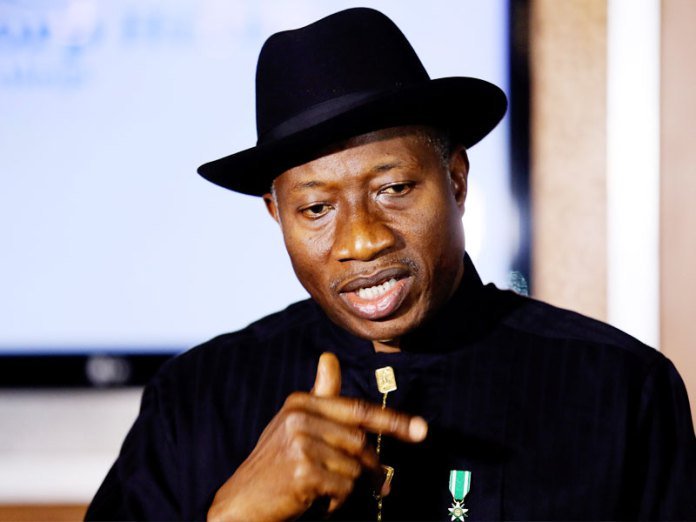Niger President, others praise Jonathan as good example for African democracy
African leaders led by President of Niger and Chairman of ECOWAS Heads of State and Government, Mahamadou Issoufou, and former Liberian President, Amos Sawyer, on Wednesday paid tribute to former President Goodluck Jonathan for leaving office voluntarily and masterminding peaceful power transition, describing it as an exemplary show of leadership that should motivate those in power.
President Issoufou made this known while giving his presidential address at the on-going Constitutional Terms Limit Summit in Niamey, capital of Niger.
Mr Issoufou also commended other former Presidents in attendance including Nicephore Soglo of Benin, Amos Sawyer of Liberia, Mahamane Ousmane of Niger and Catherine Samba-Panza of the Central African Republic all of who he said adhered to prescribed term limits.
Stressing that term limits strengthen democratic institutions and promote peaceful power transfers from one administration to another, the Nigerien President pledged to limit himself to the two terms stipulated by his country’s constitution.
“My strongest desire is to transfer power after a transparent election. This will be the greatest achievement of my administration,” the president who is already on his second term said.
President Issoufou also praised former South African President, late Nelson Mandela, who he said “resisted pressure to continue in office by deciding to do only one term.”
Similarly, former Liberian President, Amos Sawyer praised Mr Jonathan for setting what he called a democratic example by peacefully handing over power to his successor.
Mr Sawyer who is also participating at the constitutional term limits summit described the former president as a remarkable man who did not let his ambition becloud his sense of patriotism.
“I want to thank former President Jonathan is a remarkable gentleman, for what he did for Nigeria; he did not do a second term; he showed example. He handed over powerful peacefully,” he said.
“He said his presidency is not worth the blood of a single Nigerian in the fray, I thank you very much in this respect.”
Speaking in a panel on the guiding principles of constitutionalism, Mr Jonathan noted that term limits must be respected by leaders, adding that a change to a nation’s constitution in that regard could only come through a comprehensive process that allows the participation of all citizens, and not by members of parliaments alone.
He said further that the ECOWAS sub-region has been intervening to protect democracy and checkmate those leaders that go against the wish of the people.
He said: “When I became President there were many classical cases of such, incidentally most of those cases happened when I served as the chairman of ECOWAS authority of Heads of State and Government. The first was even in this country (Niger), where the former President wanted to stay beyond the constitutionally allowed limits. That caused some social strife and the military even intervened. I remember then that we had a conversation with the military leaders then and we made it clear to them that ECOWAS will never accept military intervention. Of course, we negotiated and that made it possible for the election to be conducted and a new president emerged.
“We had a similar thing in Burkina Faso. It was more challenging because the parliament agreed to even amend the constitution to allow the President to continue. But the civil society was quite restive to the extent that the parliament building was burnt down.”
Mr Jonathan noted that ECOWAS leaders again intervened and the crisis in that country was resolved in favour of the emergence of a democratically elected president.




